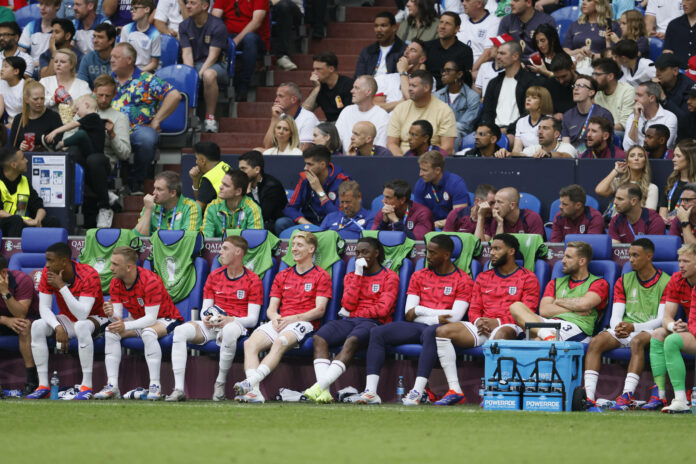David Lynch Slams Gareth Southgate Over Treatment of Liverpool Stars
In the realm of football, the use of players and tactical decisions can often make or break a team’s performance in crucial tournaments. David Lynch’s recent comments on the ‘Media Matters’ podcast by Anfield Index have ignited discussions about England’s tactical missteps in utilising Joe Gomez and Trent Alexander-Arnold. These insights offer a poignant critique of England’s defensive strategies and raise questions about the broader implications for the team’s future in international competitions.
Questionable Tactical Decisions
David Lynch did not mince words when discussing England’s current approach under Gareth Southgate, particularly in the deployment of Joe Gomez and Trent Alexander-Arnold. As he pointedly remarks, “I didn’t expect them to come on, because I think what is the point in taking them. You’ve got serious problems at left-back, so surely the reason you take Gomez is because you have seen the season he has had at left-back for Liverpool.” This observation underscores a missed opportunity to leverage Gomez’s proven capabilities in a position that has been problematic for England.
The decision to overlook Kieran Trippier’s less than stellar season and to experiment with Ezri Konsa at left-back, who is traditionally not accustomed to playing in this position, further highlights a series of puzzling choices. Lynch argues, “Trippier had a disastrous season and to be playing so poorly and looking blatantly like a right-back at left-back and then if you’re going to play Ezri Konsa at left-back ahead of him, there’s just no point in taking him.”
Structural Flaws Over Individual Failings
Southgate’s management style and decision-making processes have often been a topic of debate, and Lynch’s comments add fuel to this ongoing discussion. He suggests that Southgate has a tendency to scapegoat players like Trent Alexander-Arnold, stating, “Southgate has scapegoated Trent and dropped him as soon as the results don’t come.” This indicates a possible lack of support and confidence from the management, which could be detrimental to player morale and team dynamics.

Lynch’s critique extends beyond individual players to the very foundations of the team’s strategy. He believes that “the problems are structural, not down to personnel.” This statement calls for a deeper analysis of England’s tactical framework and management strategies, which seem to lack coherence and adaptability in high-pressure situations.
A Pessimistic Outlook for England
The critique provided by Lynch is stark and uncompromising. His forecast for England’s performance in upcoming rounds is gloomy: “I think England will go out in the next round because they’re absolutely terrible, no one has ever really thought Southgate was brilliant tactically but he is really having his pants pulled down at this tournament.” This prediction not only questions Southgate’s tactical acumen but also reflects a broader disillusionment with England’s ability to compete at the highest level under his leadership.
Forward Thinking: What Needs to Change?
The insights shared by David Lynch prompt a necessary reflection on England’s strategic approach to international football. It is imperative for the management to reassess not only their player selections but also their overarching tactical philosophies. Emphasizing flexibility, player strengths, and tactical coherence could pave the way for more robust performances in future tournaments.
In conclusion, the observations from Lynch provide a critical lens through which the current state of England’s football strategy can be examined. For England to progress and succeed, a thorough and honest evaluation of their tactical and structural decisions is crucial. Only then can they hope to realize their potential on the international stage.



